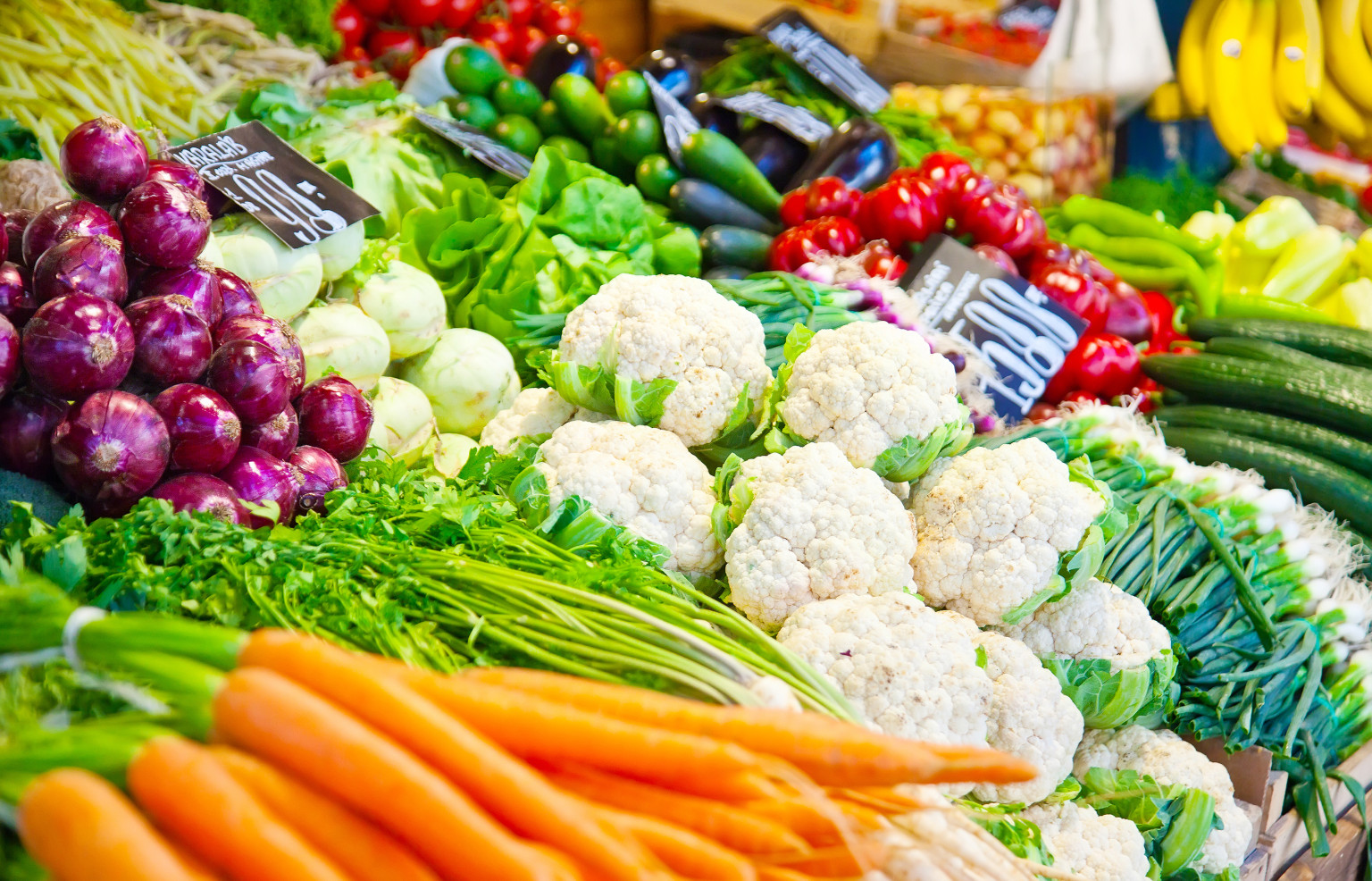Vegetables: useful pleasure

By Nazrin Gadimova
In summer, everyone becomes vegetarian to some extent as the amount of vegetables, fruits and berries increases considerably during this season of year, as this helps us to stock up vitamins for the winter.
Fruits are eaten mainly in their raw form but the vegetables can be cooked, baked and stewed. However, one should remember that during the heat treatment, vitamins getting lost, except very useful substances, bioflavonoids, which have anti-inflammatory, immune stimulating effect, and even the ability to prevent cancer. Besides the above mentioned useful properties, vegetables and fruits have a cooling effect on the body.

We can say that beetroot - a recognized body "cleaner" - ranks first among the vegetables by the useful properties. Firstly, it contains cellulose, phosphorus, copper, vitamin C, and a number of organic acids which enhance the "movement" of the food and destroy harmful bacteria in the intestine. Secondly, it is composed of betaine, which causes the liver to effectively get rid of toxins. And thirdly, beetroot helps to rejuvenate body, as it contains folic acid (creates more new cells) and quartz (improves skin, hair and nails).

Cabbage ranks second in this list; it is of various kinds, and they are all very helpful. Thus, cabbage, broccoli and cauliflower contain large amounts of dietary fiber, which helps bind heavy metals and toxins, and then remove them from the intestine. Moreover, these kinds are rich in organic acids, which improve digestion and normalize the microflora of the digestive system.

Despite the fact that many people do not like garlic, which is understandable - the smell of garlic can not be remedied by anything except the smell of onion - it remains one of the useful vegetables. One clove of garlic contains more than 400 of useful components that reduce the level of cholesterol in the blood and unclog vessels, kill Glioblastoma multiforme cells (which often becomes the main cause of brain cancer), destroy diphtheria, tubercle bacillus and helicobacter (which causes stomach ulcers).

Onions too, which we have mentioned above, often becomes a victim of senseless attacks, though it is known to the world for over 5,000 years. But for those who do not take it seriously, it is very useful to know that onion's main value is Phytoncides, which kills many bacteria and fungi in just a few seconds. Additionally, it improves digestion, nutrient uptake and even appetite, while a large amount of sulfur can effectively neutralize and remove all toxins out of the body.

It is believed that the addition of herbs (parsley, basil, dill, spinach) in a dish ten times reduces the risk of incidence of hypertension and atherosclerosis. So, nutritionists increasingly recommend eating spinach because of its high content of vitamin C. This vitamin is able to stimulate the immune system and has anti-inflammatory effect. It is particularly useful for patients with arterial hypertension and atherosclerosis. It is important to eat at least a few leaves of spinach every day.

Speaking about the benefits of vegetables, in any case, we should not forget about tomatoes. This vegetable, which appeared in Europe thanks to the discoverer of America, contains Lycopene, which has a pronounced antioxidant effect. Tomatoes are useful to eat in hypertension and atherosclerosis.

Bell pepper or sweet pepper, a wonderful tasty and healthy vegetable, is second only to dog rose and black currants by content of vitamin C, while it is absolute champion among the vegetables. Moreover, the pepper has a rare vitamin E, which helps in the absorption of ascorbic acid and makes pepper an indispensable assistant of our heart and blood vessels. Vitamin P makes the vessel walls more elastic, and vitamin C "cleans" cholesterol plaques. Thus, regular eating pepper can reduce the risk of getting stroke by 46 percent! To provide the body with the daily requirement for vitamin C, one need to eat only one large pepper.

Carrot is useful in a variety of diseases: anemia, bronchitis, certain skin and cardiovascular diseases, and especially to the eyes. By carotene content carrot exceeds almost all fruits and vegetables (except for sea buckthorn), not to mention its cheapness and availability at any time of year. To meet the daily requirement of carotene (6 mg) it is enough to eat 100-200 grams of carrots.

Fresh cucumbers will always find their place at our table. But how much do we know about the cucumber? Cucumber promotes the assimilation of protein foods, so it should certainly coexist with meat foods. It is very useful in case of problems with the cardiovascular system and digestive tract diseases. Eating fresh cucumbers one can get rid of swelling, and moreover, its gentle fiber cleanses the intestines and removes cholesterol excess, which is the prevention of atherosclerosis.
Balanced use of fruits and vegetables promotes normal hormonal background, beautiful hair, skin, nails, good mood and what is the most important - good health. For those who want to lose weight, vegetables are essential, as they are low-calorie products. They are widely used in cooking, thanks to its rich taste and ability to be combined with other products, thereby facilitating easy digestion of food.
Currently, nutritionists recommend us to eat five fruits or five vegetables a day. But do not focus on these indicators. The more fruits and vegetables you eat per day, the better.
Here we are to serve you with news right now. It does not cost much, but worth your attention.
Choose to support open, independent, quality journalism and subscribe on a monthly basis.
By subscribing to our online newspaper, you can have full digital access to all news, analysis, and much more.
You can also follow AzerNEWS on Twitter @AzerNewsAz or Facebook @AzerNewsNewspaper
Thank you!
